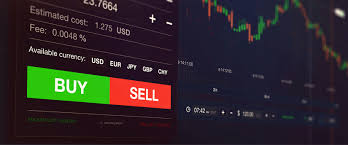Forex trading is one of the most exciting and lucrative markets in the financial world. For many traders, it offers opportunities that go beyond traditional investment avenues, allowing them to capitalize on currency fluctuations. If you are looking to dive into the world of Forex, here’s what you need to know, including information on forex and trading Forex Brokers in Cambodia and how to choose the right one for your needs.
Understanding Forex Trading
Forex, or foreign exchange, involves trading currencies against one another. The market operates 24 hours a day, five days a week, with trading sessions overlapping across different time zones. This constant activity creates a dynamic environment full of opportunities, but it also involves considerable risks.
Why Trade Forex?
There are numerous reasons why traders might choose the Forex market:
- High Liquidity: The Forex market is the most liquid financial market in the world, with a daily trading volume exceeding $6 trillion. This liquidity allows for quick transactions and minimal price fluctuations during standard trading hours.
- Accessibility: Compared to other investment avenues, Forex trading is relatively easy to access. With just a computer and a reliable Internet connection, anyone can start trading.
- Leverage: Forex trading offers the option to use leverage, allowing traders to control larger positions with a smaller amount of capital. While this can amplify profits, it also increases potential losses, so it should be used cautiously.
- Variety of Currency Pairs: Traders can choose from a wide array of currency pairs, allowing them to develop diverse strategies based on economic conditions, global events, and other market dynamics.
Key Terms in Forex Trading
To navigate the Forex market effectively, it’s essential to understand a few common terminologies:
- Pip: Short for “percentage in point,” a pip is the smallest price move that a given exchange rate can make based on market convention.
- Lot: A lot represents the size of the trade. Forex trading can be conducted in standard lots (100,000 units), mini lots (10,000 units), and micro lots (1,000 units).
- Spread: The spread is the difference between the buying price (ask price) and the selling price (bid price) of a currency pair.
- Margin: Margin is the amount of capital required to open a leveraged position. It acts as a good faith deposit for the broker.
Strategies for Successful Forex Trading
Developing a good trading strategy is critical for success in Forex. Here are several popular strategies that traders might consider:
- Scalping: This strategy involves making numerous small trades throughout the day to capitalize on minor price fluctuations.
- Day Trading: Traders using this strategy open and close trades within the same day, aiming to profit from short-term market movements.
- Swing Trading: This approach focuses on holding trades for several days or weeks to capture larger price movements.
- Position Trading: Long-term traders using this strategy hold trades based on sustained trends and economic forecasts.
Using Technical and Fundamental Analysis
Successful traders often combine both technical and fundamental analysis to make informed decisions:

Technical Analysis
Technical analysis involves analyzing price charts and using indicators to predict future price movements. Traders look for patterns, support and resistance levels, and utilize tools such as Moving Averages, Relative Strength Index (RSI), and Fibonacci retracements.
Fundamental Analysis
Fundamental analysis focuses on economic indicators, political events, and market news that can impact currency values. This includes monitoring interest rates, GDP, unemployment rates, and geopolitical events.
Choosing a Forex Broker
Selecting a reliable Forex broker is fundamental to trading success. Factors to consider include:
- Regulation: Ensure the broker is regulated by a reputable financial authority to guarantee the safety of your funds.
- Trading Platform: The trading platform should be user-friendly, stable, and equipped with the necessary tools for analysis and execution.
- Customer Support: A responsive customer support team can make a significant difference, especially for new traders who might have questions or issues.
- Fees and Spreads: Be mindful of the fees associated with trading. Look for competitive spreads and commissions that align with your trading style.
The Importance of Risk Management
Risk management is crucial in Forex trading. Successful traders often implement strategies such as:
- Setting Stop-Loss Orders: A stop-loss order automatically sells a position when it reaches a predetermined price, minimizing potential losses.
- Using Position Sizing: Determining how much of your capital to risk on each trade can help preserve your trading account and prevent significant losses.
- Diversifying Your Trades: Avoid putting all your capital into one trade or currency pair. Diversification can reduce risk.
Staying Informed and Continuous Learning
The Forex market is constantly evolving, and successful traders stay informed about market trends and economic news. Joining trading communities, attending webinars, and reading market analysis reports can help enhance trading skills.
Conclusion
Forex trading offers a world of opportunities for those willing to learn and adapt. By understanding the market, developing effective strategies, and managing risk, traders can navigate this dynamic environment successfully. Remember, trading is not just about making money; it’s about making informed decisions, maintaining discipline, and continuously improving your skills.
